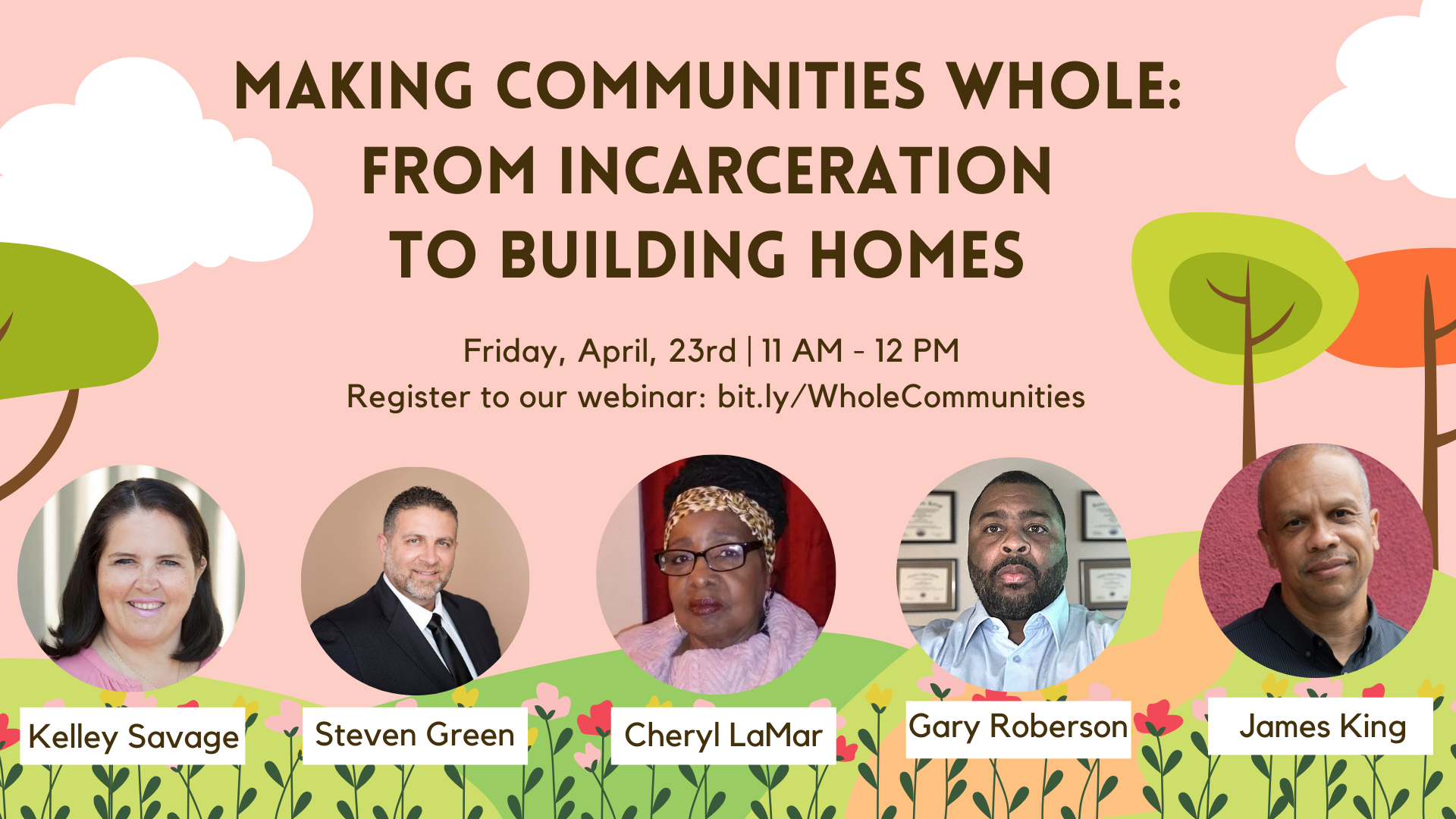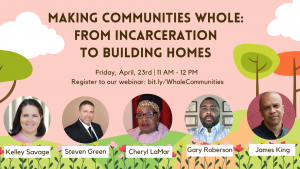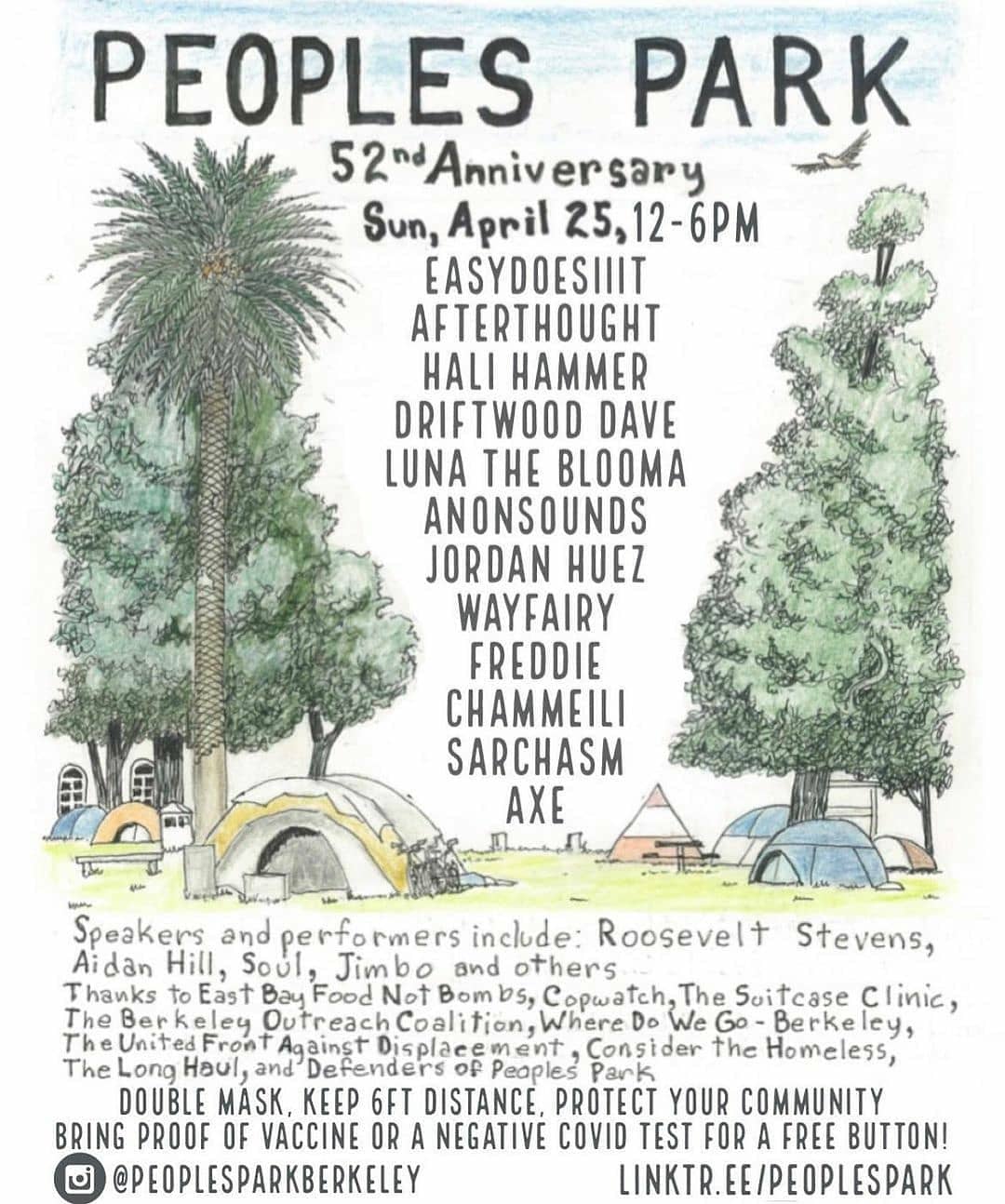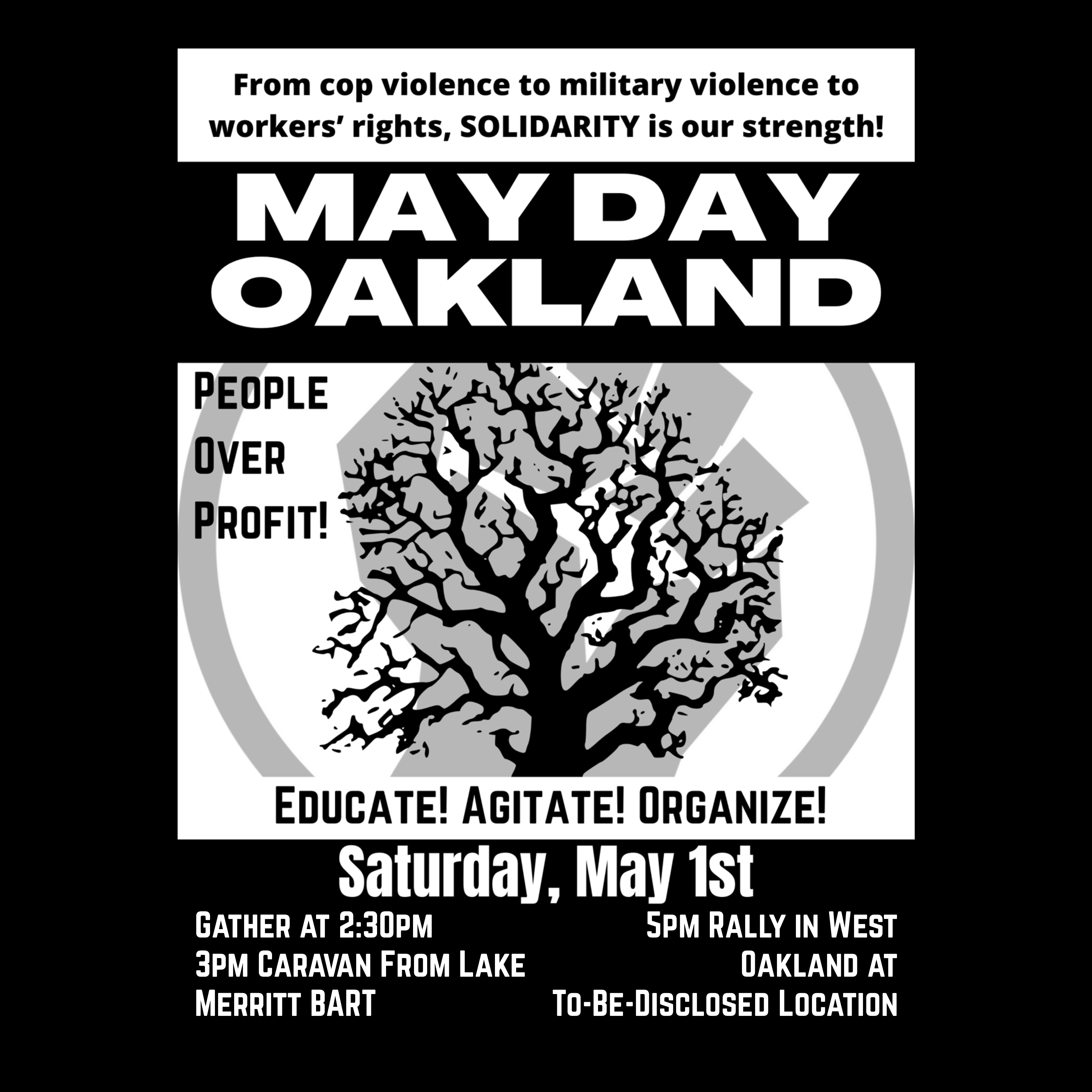Calendar
Since the start of the pandemic-induced shutdowns, the housing terrain has exploded with organized political activity. Be it from state-mandated shutdowns, or from poor economic conditions, millions of workers have found themselves without their usual wages. Of course, many workers are also tenants, and landlords have not ceased demanding high rents despite the ongoing economic turbulence. This has produced a series of system-wide tensions around housing in general and with the tenant-landlord relation in particular. In other words, the crisis has thrown light onto previously obfuscated fault lines that run directly through the housing terrain. To understand this crisis, we have to also understand the way in which housing is integrated into the circuits of capitalist accumulation. This class focuses on housing in these two ways: first, as a site of struggle, and second as an element of the wider mechanics of capitalist accumulation.
Priority Reading & Viewing:
- Chapter from In Defense of Housing by David Madden and Peter Marcuse
- Please read Chapter 1: “Against the Commodification of Housing”
- Summary: In this chapter, Marcuse and Madden go over the basic condition of housing under capitalism: commodification. Commodification, a concept borrowed from Marx’s capital, is a process distinctive to capitalist society. A commodity has a use value and an exchange value. Housing has an obvious use value—the fact that workers must reproduce themselves. However the exchange value of a home—which takes the form of rent for tenants and a mortgage loan for homeowners—is elevated in capitalist society. Production and distribution of housing are centered on exchange value rather than use values, and this chapter describes how this happens and why we must organize against it.
- Gentrification is a Feature, Not a Bug of Capitalist Urban Planning – Samuel Stein – Jacobin
- Summary: Urban planners, under capitalism, face extreme contradictions that force them to decide between the wants of real estate capitalists and manufacturing capitalists. In this system, gentrification is a necessary by-product that ends up displacing families from areas they have lived for years.
- Excerpt: No Job, No Rent: 10 Months of Organizing the Tenant Struggle – Stomp Out Slumlords, Metro DC DSA
- Please read Part 2: “The Course of the Struggle”
- Summary: While our other texts have viewed the housing problem from the perspective of capitalist social relations, this text switches focus and views the problem from the position of class struggle. Comrades at Metro DC seemed to have learned valuable lessons that can be helpful for our work here.
- This is Parkdale (Movie – 30 min)
- Very short, inspirational film that goes over a large rent strike launched by working class tenants in Toronto, CA. This is a good example of a struggle at the local level and demonstrates how tenants can fight against corporate landlords with high building concentrations in a local area.
KRCB (Sonoma). April 20, 7-9 PM 90 min film, followed by 30 minute panel discussion
Over-The-Air 22.1
Comcast 22
Comcast South Bay 200
Comcast HD 722, 1022
Direct TV / ATT Uverse 22
Dish 22
KPJK (San Mateo). April 22, 8-10 PM 90 min film, followed by 30 minute panel discussion
Over-The-Air channel 60.
Comcast 17
Comcast HD 717, 1060
Direct TV / ATT Uverse 43
Dish 60
KQED viewers should be able to pick up KRCB and KPJK with no difficulty. You can also stream KRCB on its website if you are viewing in its demographic area.
_________________________________________________________________________________________________
Occupy the Farm follows a community’s struggle to preserve public land for urban farming. The Gill Family transferred their farm to UC Berkeley in 1929, believing that it would always remain a farm. But by the 21st century only a fraction of it remained open growing fields. The film captures an intense conflict over the fate of the last remaining 20 acres of farmable land in the urban East Bay, when community members employed an ingenious and audacious strategy to confront a powerful institution that had ignored them.
When the 200 community members marched to the gates of this farm, they did not carry signs protesting the University of California’s plans to turn this research farm into a shopping mall. Instead, they carried tents, tools and 15,000 seedlings. They cut the padlocks off the gate, marched onto the land and planted two acres of crops. What happened next changed the destiny of the land and presented a hopeful new strategy for activists. From preparing the soil, to police raids, from lawsuits to overflowing harvests, Occupy the Farm reveals a resourceful community facing off against a powerful institution to provide access to healthy food and protection for public lands.
Following the film, a roundtable discussion will update the work on the farm during the pandemic, discuss new threats to this contested land, and reflect on what the pandemic, and climate change mean for the future of urban agriculture. Participants include: Effie Rawlings, UC Gill Tract Community Farm member, and OCCUPY THE FARM organizer; Ashoka Finley, an OCCUPY THE FARM organizer and urban farmer who works in technology, and is now part of a start up in San Francisco; Will Smith, of Black Earth Farmers, who took the responsibility to manage farming operations just prior to Covid-19, and throughout the pandemic led farming, and food distribution for the Gill Tract; Charisma Acey, Associate Professor of City and Regional Planning in the College of Environmental Design, and Faculty Director of the Berkeley Food Institute, who looks at the potential for urban farming amid increased pressures on the available land; and Todd Darling, the film’s director/producer.
Update: The Farm Today (2021)
The occupation transformed from an occupation to an actual farm. Organizers who had once been arrested for trespassing now have keys to the front gate. Slightly more than one acre of land at the Gill Tract became the UC Gill Tract Community Farm. Volunteers from the community work alongside researchers from UC College of Natural Resources, and have created a research farm that operates a weekly farm stand, distributes food to East Bay organizations, and studies how best to create resilient, urban agriculture.
During the pandemic, the need for resilient, urban farming became painfully obvious. Tens of thousands of families in the Bay Area became food insecure. Food banks were stretched to their limit as a result of Covid-19. This one-acre farm was able to supply food to 70 East Bay families a week, at no charge, even with delays and the complications of developing COVID 19 protocols. With the arrival of Spring, the farm is now busy planting crops, preparing for a productive 2021. Revolving crews of volunteers arrive to work the farm and are led by Farm Educators.
Now, however, the Gill Tract land faces a new dilemma. UC Berkeley says they need housing for an expanded student population. Land that currently contains the farm’s barns and offices, and that once housed numerous greenhouses, has been targeted by the University for a large, six or seven story dormitory. Intended for graduate students, the dormitory would be built by a Texas company, American Campus Communities, which specializes in “the privatization process.” The company would build the dorm on the Gill Tract and then own and operate it. This new dormitory will shrink the growing lands as the existing facilities would have to be moved onto the remaining fields. According to preliminary plans, the dormitory will provide no classrooms or space for the farm, nor offer any educational linkage to this farm. Additionally, the University’s ten-year commitment to operate the UC Gill Tract Community Farm will soon expire. According to UC Capital Strategies, the UC Regents still have to approve the plans and the contract with American Campus Communities. The test of whether these public resources are for research for the public good, or will be “privatized,” is once again on the table.
A special program will celebrate Earth Day and launch a system-wide University of California Center for Climate Justice, an initiative to address climate change as a social justice and equity issue. “The UC Center for Climate Justice seeks solutions that address the root causes of climate change and, in doing so, simultaneously address a broad range of social, racial, and environmental injustices.”
The Center for Climate Justice launch event will be held over two days, April 22-23, 2021, beginning on Earth Day. It will feature:
* Keynote presentations by food sovereignty scholar-activist Vandana Shiva and DOE Deputy Director for Energy Justice Shalanda Baker.
* A fireside chat with Green New Deal architect Rhiana Gunn-Wright (https://lnkd.in/geyGH83) and the director of the new center, Tracey Osborne.
* Panel discussions featuring California climate justice leaders, scholars and activists.
* A music and spoken-word celebration on the second day.
WHEN
Thursday, April 22, 9 AM – 1:30 PM
Friday, April 23, 9 AM – 3:30 PM
MORE INFO AND REGISTRATION HERE.


Join the Ella Baker Center for a virtual panel discussion with formerly incarcerated community members to share their personal journey coming home and their wisdom why communities should invest in the liberation of incarcerated community members. Our theme focuses on centering incarcerated peoples’ leadership, building together to make our communities whole, and the urgent need for Governor Newsom to grant mass clemency and emergency releases to save lives from the devastating effects of COVID-19 in CA’s prisons. We will also have actions you can take to support incarcerated community members with pending clemency applications.

In partnership with local and national community-based organizations that continue to lead the way to shape abolition – groups like Critical Resistance, Black & Pink, Love & Protect, Parole Illinois – Prison+Neighborhood Arts/Education Project (PNAP) is kicking off two years of programming with two events featuring key thinkers in conversation about teaching and learning, cultural work, and abolition.
Join us and learn from local and national organizers, cultural workers, educators, and scholars who are building radical teaching and learning pathways for currently and formerly incarcerated communities, sustaining crucial campaigns for freedom, and creating more just and beautiful communities.
Panelists: Angela Davis, Beth Richie, Kathy Boudin, Timmy Chau
Angela Davis
An author, activist, educator, and Civil Rights icon, Davis has authored 10 books that cover race, feminism, class, and the U.S. prison system including If They Come in the Morning: Voices of Resistance, Women, Race and Class, Blues Legacies and Black Feminism, and Freedom is a Constant Struggle: Ferguson, Palestine, and the Foundations of a Movement. Through her activism and scholarship over many decades, Angela Davis has been deeply involved in movements for social justice around the world. Her work as an educator – both at the university level and in the larger public sphere – has always emphasized the importance of building communities of struggle for economic, racial, and gender justice. Professor Angela Davis, distinguished professor emerita of History of Consciousness and feminist studies at the University of California, Santa Cruz, is an author of ten books. A political activist, scholar, educator, and founding member of the Critical Resistance, she continues her work focusing on social problems associated with incarceration and the generalized criminalization of those most affected by poverty and racial discrimination. An international lecturer known for powerful speeches and dialogue about injustice, Professor Davis has been involved in movements for social justice worldwide. Since the early 1970s, she continues to address racial injustice and social equity on an internationally recognized platform.
Support the family of Mario Gonzalez tomorrrow, 12 noon @1555 Oak St, Alameda.
The family has seen the devastating footage of Alameda Police killing their beloved Mario.
Join in front of Alameda Police Dept to support the family. Bring signs & posters#Justice4MarioG pic.twitter.com/au5c07U0sm
— Anti Police-Terror Project (@APTPaction) April 26, 2021
🏠 Learn how to protect your home tomorrow, Tuesday 4/7, at our Foreclosure Prevention Webinar in partnership with @BayLegalJustice & Legal Aid of Sonoma County.
This webinar is open to the public.
Register: https://t.co/M2kG5ciujT pic.twitter.com/YukPR7D7UO
— EBCLC (@EBCLCNews) April 26, 2021
Many people work at nonprofits for the same reason they become socialists – they see the ills of the world and want to have a hand in changing them. Join us for this EBDSA Night School exploring the relationship between the fight for socialism and nonprofits. We’ll look at the limits of philanthropy and enacting change through nonprofits, and explore what it means to build working-class power to fight capitalism.
Readings
https://midwestsocialist.com/2019/07/29/non-profits-in-the-coming-struggle/
https://www.jacobinmag.com/2015/08/peter-singer-charity-effective-altruism/
Audio
Not for Profit? The Nonprofit Industrial Complex
Join Zoom Meeting
https://us02web.zoom.us/j/82065674829?pwd=Yjh4OFVveDNvRUFCSjFHNkVPRDlOdz09
Meeting ID: 820 6567 4829
Passcode: school
One tap mobile
+16699006833,,82065674829#,,,,*432578# US (San Jose)
+13462487799,,82065674829#,,,,*432578# US (Houston)
Whether you’ve got zero crafting ability or you’re a design genius, we need you to help create the art for the May Day Action! Hundreds of DSA members are joining the May Day March to call for the passage of the PRO ACT, so that means we need a lot of people to help make **hundreds** of red flags for DSA members to wave at the march!
Join us for a socially distant art build on Wednesday, April 28th, 3-7 pm at San Pablo Park, Berkeley near the intersection of Park and Oregon St. In addition to flags, we’ll also be crafting puppets for the DSA PRO Act street theater(!) Come hang and do some art in the park with us!
If you’re a music-maker, bring your instrument! At 5 pm during the art build, those who want to form a DSA marching band for the May Day march will be able to gather and practice!
Please remember to wear PPE (especially a face covering or mask)
Transportation accounts for over half of all greenhouse gas emissions in California. Join the Climate Center in this webinar on equitable transportation and clean mobility strategies that can wean us off fossil fuels.
Speakers:
Assemblymember Phil Ting
Rebecca Fisher, Bay Area Air Quality Management District
Dr. Joseph K. Lyou, Coalition for Clean Air
Andrea Vidaurre, Peoples Collective for Environmental Justice
Ricardo Hidalgo, International Brotherhood of Teamsters
Register here
To see the full lineup of the Climate Center’s Climate-Safe California webinar series, as well as recordings of past webinars, click here.
Amid nationwide reckoning with racial justice and calls to reimagine policing in America’s cities, Oakland has moved ahead with plans to change its public safety funding and performance.
The Defund OPD campaign was launched by the Anti Policy Terror Project five years ago. Join us for a discussion with two leaders in the effort to change the criminal justice system.
About the Speakers
Cat Brooks is an activist, performer, politician and speaker or who has served as the communications director for Coaching Corps, as executive director of Youth Together and executive director of the National Lawyers Guild. Brooks is the co-founder of the Anti Police-Terror Project (APTP) whose mission is to rapidly respond to and ultimately eradicate what it calls state violence in communities of color. With APTP, she shepherded the development of a “first responders” process, which provides resources and training for a rapid community-based response to police violence. She also helped negotiate the passage of AB392, AB 931 and SB 1421 and has organized with local housing advocates to bring Proposition 10 (Repeal Costa Hawkins) to the ballot in November. n late 2018, Cat was the runner up in the Oakland mayoral race. Brooks currently serves as the executive director of the Justice Teams Network, a network of grassroots activists providing rapid response and healing justice in response to all forms of state violence across California. In addition, she is touring her one-woman show, Tasha, about the in-custody murder of Natasha McKenna in the Fairfax County Jail. She lives in West Oakland with her daughter.
Born and raised in Natick, MA, James Burch grew up with the direct impacts of a punitive carceral system within his immediate family; all three of his siblings have been entangled in the criminal justice system for their entire lives. To address this, James became a lawyer after attending Yale University and Georgetown Law School. Upon moving to the Bay Area, James became an active member of the Anti Police-Terror Project, eventually becoming the director of policy and a member of the Black Leadership Team. Burch now works as the policy director for the Justice Teams Network (JTN), a statewide coalition working to end state violence in California. James is also the current president of the National Lawyers Guild of the Bay Area.
This program was rescheduled from April 12, 2021.
This is a free, online-only program; you must pre-register to receive a link to the live-stream event. We welcome donations made during registration to support the production of our online programming.
Aviva Chomsky restores the region’s fraught history of repression and resistance to popular consciousness and connects the United States’ interventions and influence to the influx of refugees seeking asylum today.
At the center of the current immigration debate are migrants from Central America fleeing poverty, corruption, and violence in search of asylum in the United States. In Central America’s Forgotten History, Aviva Chomsky answers the urgent question “How did we get here?” She outlines how we often fail to remember the circumstances and ongoing effects of Central America’s historical inequality and oppression, a direct result of colonial and neo-colonial development policies and the cultures of violence and forgetting needed to implement them.
Chomsky expertly recounts Central Americans’ valiant struggles for social and economic justice to restore these vivid and gripping events to popular consciousness. She traces the roots of displacement and migration in Central America to the Spanish conquest and brings us to the present day, where she concludes that the more immediate roots of migration from the three Northern Triangle countries (El Salvador, Guatemala, and Honduras) lie in the wars and in the US interventions of the 1980s and the peace accords of the 1990s.
Chomsky also examines how and why histories and memories are suppressed, and the impact of losing historical memory. Only by erasing history can we claim that Central American countries created their own poverty and violence, while the United States’ enjoyment and profit from their bananas, coffee, vegetables, clothing, and export of arms are simply unrelated curiosities.
Aviva Chomsky is a professor of history and the coordinator of Latin American Studies at Salem State University. The author of several books, including Undocumented and “They Take Our Jobs!,” Chomsky has been active in the Latin American solidarity and immigrants’ rights movements for over thirty years.
Mickey Huff is the current Director of Project Censored and president of the nonprofit Media Freedom Foundation. He has edited or co-edited ten annual volumes of Censored, and contributed numerous chapters. He is currently professor of social science and history at Diablo Valley College, where he is also co-chair of the history department. He is executive producer and co-host of the Project Censored Show, a weekly syndicated public affairs program aired over KPFA Radio and fifty community radio stations.
MACRO is the alternative emergency response that displaces police with well-trained community members to help with some emergency situations. Oakland-wide meeting to hear more on Thursday, April 29th, 6:30, on Zoom. Register at https://t.co/aIBSRrF2xD pic.twitter.com/VMNXZ44GQD
— Coalition for Police Accountability (@oakcopoversight) April 26, 2021
Global Women’s Strike/Bay Area, part of the Alliance for Social and
Economic Justice, invites you to take part in the film festival (info
below) to help raise funds to launch a Center for Social and Economic
Justice in the Redstone Labor Temple in SF.
This weekend, North Oakland Mutual Aid will be at Omni Commons for taking in donations for the next round of resource materials to be collected and redistributed to our neighbors who are unhoused and/or precariously sheltered.#north #oakland #mutualaid #omnicommons #oakland pic.twitter.com/6wLi2n4MFW
— Omni Commons (@omnicommons) April 28, 2021
SF Bay Area May Day Parade & Rally for Workers’ Rights & Racial Justice
Join Bay Area Labor on May 1st as we recreate the famous 1934 May Day march up Market Street from the Embarcadero to Civic Center for a rally. Wear your union shirts and jackets! Organizations should sign up HERE. You can also download the FLIER.
Celebrations of International Workers’ Day, also called May Day, date back over 100 years to the fight for an eight hour work day. In San Francisco, May 1 has also played host to a rich history of collective action by workers—and this year will be no different.
The triple-threat of rising income inequality, racial injustice, and COVID-19 has hit working families hard. In order for our communities to emerge from this crisis healthy and prosperous, we need a just and equitable recovery for all.
That means building support for key legislation like the Protecting the Right to Organize (PRO) Act, which will empower workers to exercise our freedom to organize and negotiate for better wages and working conditions. It also means uniting together—no matter who we are or where we come from—to #StopAsianHate, proclaim that #BlackLivesMatter, ensure immigrants are safe and welcome in our communities, and fight to ensure that workers everywhere can live and work with the dignity and respect we all deserve.
Saturday, May 1 @ 10 am
Meet at the Embarcadero
Organizations should RSVP at http://www.bit.ly/mayday2021
Salute the working-class rebels who sparked this international holiday
A story in song, dramatic readings and images Explore May Day’s origins in the world struggle for an eight-hour day and honor the heroes who put their lives on the line for the rights of every worker.
From copy violence to military violence to workers’ rights, SOLIDARITY is our strength!
People Over Profit! Educate! Agitate! Organize!
5pm Rally in West Oakland at a to-be-disclosed location.


